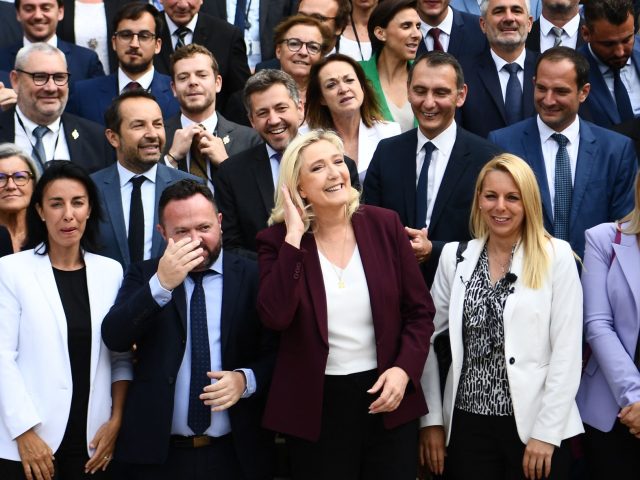A report conducted by a group of think tanks has found that so-called “disinformation” had little effect on recent elections in France.
Long the bugbear of mainstream media and deep-state activists alike, the spectre of so-called “disinformation” and its effects on political and social discourse have frequently been referenced to justify censorship, especially when it comes to online platforms.
However, a report published on Tuesday appears to indicate that these fears may be unfounded — in France, at least — with the document penned with the input of a number of think tanks finding that such disinfo had little impact on the recent French elections, during which populists such as Marine Le Pen performed extremely well.
According to the research conducted by CheckFirst, the Institute for Strategic Dialogue, along with a number of other organisations, so-called “disinformation” had very little actual effect on both the Presidential and the General elections in France, though the researchers do claim that they came across content they found to be “troubling”.
“…the attempts at destabilisation we analysed had a limited impact,” a press release posted by CheckFirst regarding the research reads.
The think tanks go on to partially blame Russia for the reduced effect of disinformation, claiming that the state’s meddling bots and other maniacal resources were directed elsewhere as a result of the war in Ukraine.
“…the war in Ukraine led to a redeployment of the resources of Russia, one of the main actors of foreign interference in the West,” the explanation read.
“The ban on the Russian state-controlled media Sputnik and Russia Today (RT) from the major online platforms, and their focus on narratives to justify the war in Ukraine, weakened the ability of these outlets to influence people in France and diverted their attention from the French presidential campaign,” it went on to claim.
Eurosceptic Leader Slams ‘Hit Piece’ Article Linking Populist Figures like Tucker Carlson to Terroristshttps://t.co/KtY5w2T3Gy
— Breitbart London (@BreitbartLondon) May 26, 2022
While their own research found that “disinformation” did not actually end up having a meaningful impact on the elections in France, this did not stop the organisations involved in the paper from recommending that further measures be taken to stamp out content they find objectionable.
In particular, the activities of the so-called “far-right”, as well as the presence of pro-freedom of expression platforms like Gab, Parler and Gettr are highlighted in the report, with the organisations saying that the French government should use legislation to better get a handle on the issue through the likes of forcing independent audits for social media algorithms.
How unbiased these recommendations are will no doubt be left up to debate, with the Institute for Strategic Dialogue, in particular, having contributed comments in the past to articles on the so-called “far-right”, at least one of which was subsequently labelled a “hit piece” for comparing the beliefs of Tucker Carlson to mass shooters.
Nevertheless, biased or not, the calls for authorities to further interfere in free discourse will likely be welcomed by certain segments of the political spectrum, with officials within the administration of U.S. President Joe Biden being no stranger to calling for big tech censorship.
One of these officials, climate tsar Gina McCarthy, called on social media platforms earlier in the month to clamp down on criticism of Biden’s green agenda.
“…tech companies have to stop allowing specific individuals over and over again to spread disinformation,” she said regarding opposition to the government’s climate change agenda, alleging that the posts are being paid for by “fossil fuel companies”.

COMMENTS
Please let us know if you're having issues with commenting.